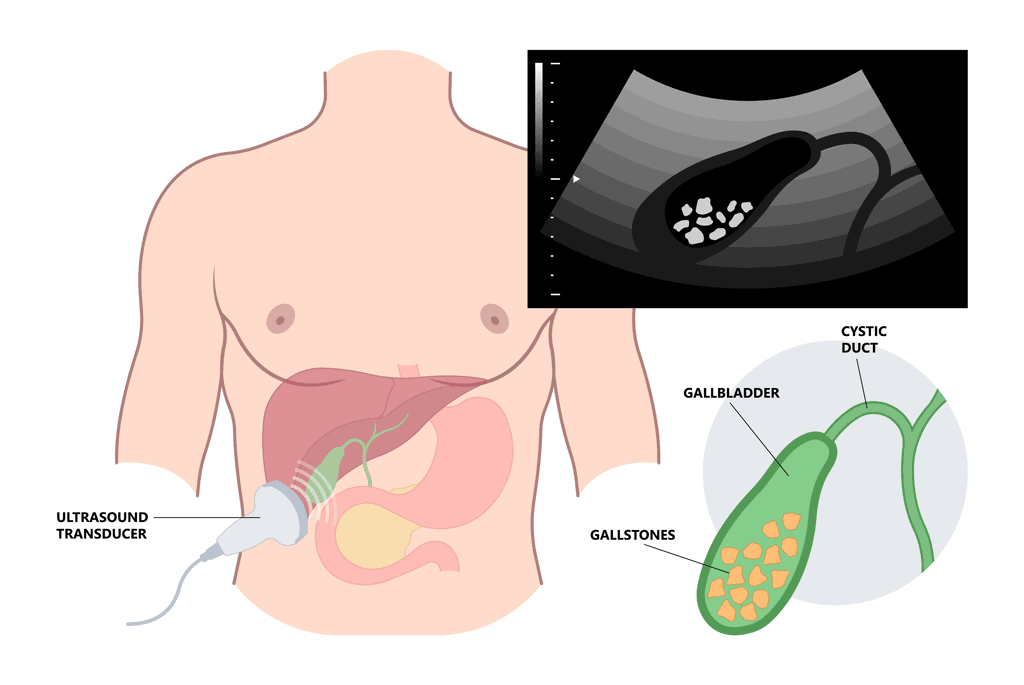What is it?
The US Hepatobiliary System (US HBS) is an ultrasound scan in Singapore that utilises high-frequency sound waves to obtain images of internal organs. The hepatobiliary system includes the liver, gallbladder, and their connecting ‘tubes’ (ducts). It is a fast, non-invasive scan that is well-tolerated by patients, has no side effects, and does not emit any radiation, making it safe for pregnant women.
It can be used to quickly visualise any problems in and around the gallbladder, assess for some causes of obstructive jaundice (such as stones or inflammation in the biliary tree), or screen for liver lesions (cysts, nodules, metastases).
What to expect from US Hepatobiliary Scan in Singapore?

This procedure is performed with the patient lying down on the examination couch in a dimmed room. A clear gel will be applied to your stomach in order to improve the transmission of ultrasound waves between your body and the ultrasound probe.
Throughout the scan, the ultrasound probe is moved around the abdomen to obtain clearer images of vital structures in the hepatobiliary system. Sometimes, slight additional pressure may be applied, to allow the probe to better visualise organs or structures that are deeper inside your body.
Limitations
The ultrasound is generally a useful first-line scan, but it has some limitations:
- If the location of the structure or mass being examined is located behind bones, e.g. your ribs, there may be difficulty in directly visualising it, as the sound waves from the ultrasound probe do not travel well through bone.
- If the patient is larger-sized, or the structure is located too deep within the body, it may exceed the depth of the ultrasound probe’s waves, making this imaging modality unsuitable.
- The image quality from an ultrasound is not particularly detailed, and hence, subsequent imaging scans such as X-rays, MRIs or CT scans are often recommended or required to provide a comprehensive diagnosis and enable your Gastroenterologist to create a treatment plan.
References
- Lindenmeyer, Christina C. “Imaging Tests of the Liver and Gallbladder - Hepatic and Biliary Disorders - MSD Manual Professional Edition.” MSD Manuals, https://www.msdmanuals.com/en-sg/professional/hepatic-and-biliary-disorders/testing-for-hepatic-and-biliary-disorders/imaging-tests-of-the-liver-and-gallbladder. Accessed 9 January 2023.
- Gandhi, MR. “Ultrasound of the hepatobiliary-pancreatic system.” PubMed, https://pubmed.ncbi.nlm.nih.gov/10633143/. Accessed 9 January 2023.

